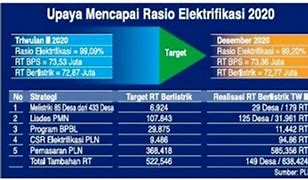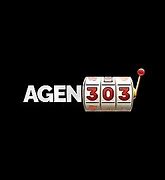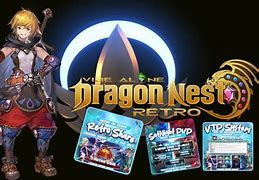
I was granted early access into TheTripoint’s work, and write this review based on my experience reading the first arc.
TL;DR: There’s mechs, there’s magic, there’s demons. 86 meets LitRPG Progression Fantasy in this fast-paced adrenaline shot of a novel.
Have you ever read a progression fantasy novel where you wish the protagonist had a little more…oomph? Swords and arrows are powerful, but few things compare to the explosive might of a tank cannon.
Well, this is it. Get ready for one hell of a ride aboard the pain train that is Ace mech pilot Hans Hoffman.
Hans is introduced to us as a broken man. A naked blade that has witnessed death from both ends of the gun. After many years dodging death at the frontlines, he’s killed acting as the rearguard for his retreating unit.
Yet instead of heaven (or hell), he wakes up in an entirely new world. The landscape is pristine, untouched by the ravages of war. More so, magic is in the air.
A mysterious god grants him the ability to cheat death itself, yet even in a fantasy world one law remains untouched: nothing is free. With great power comes great responsibility, and Hans is charged with fighting a seemingly unstoppable enemy: demons.
Along his travels he will encounter many faces familiar and new, wonders like no other and fresh horrors plucked straight from the deepest depths of his nightmares.
Re:Jager features a wealth of characters.
Hans’s duties will take him through dozens of new places with their own culture and people. Nobody is expressly good or bad, though the landscape is rife with hate, distrust and hope that shape the hearts and minds in widly different ways.
The main cast of characters all have fully-fledged personalities; this story is driven entirely by their goals, their fears, their prejudices and their hope for a better future.
Each one has different coping mechanisms and beliefs, from Hans’s omnipresent cynical realism all the way to unabashed hope and belief in the goodness of humanity. Re:Jager has it all; the good, the bad, and especially the ugly.
TheTripoint’s love for the core elements of the story is obvious.
Re:Jager is a timeloop fantasy novel at its core, where the main character using his unique ability to turn back time and avert disaster, avoid ambushes or even preserve his loved ones from the horrors of conflict in a world ridden by once-living entities driven to insanity and given grotesque powers by the injustices suffered before or at their death.
Unlike similar works, however, where the main character is some sword-totting white knight with a heart of gold or a wise magician searching for mystical secrets, Re:Jager’s protagonist is a grunt. A very capable grunt from a wartorn era, piloting an engine of destruction. He’s a mech pilot: an ace, possibly the best one to have ever lived. Where others might charge into the foe or cast winding spells, he uses the tactics, technology and even magic —granted by the strange system— he possesses as a mech pilot to triumph over the enemy.
And if that’s not enough…he’ll die. And come back faster, stronger and wiser the next time.
There’s a visceral satisfaction to watching bloodthirsty demons shatter into fragments and blown-out skeletons, hopeless to match a fearless soldier who knows their every killing blow, hidden ace and escape route.
Like every other top-tier novel, Re:Jager’s grammar and prose is impeccable. You can trust in TheTripoint’s abilities to deliver a smooth text with none of the metaphorical bumps that drive many a good plot into obscurity.
Offenbar hast du diese Funktion zu schnell genutzt. Du wurdest vorübergehend von der Nutzung dieser Funktion blockiert.
A while ago, a thought popped into my head: isekai is the mecha of the past decade and change.
The comparison is not perfect by any means, but what I see in isekai today is a position in Japanese pop culture that’s not so different from where giant robots were in the 1980s. Namely, they have their roots in power fantasies, rely heavily on visual and conceptual tropes around that power, and are pretty niche genres that are ubiquitous enough to be considered mainstream nevertheless. In other words, where giant robots were assumed to be part and parcel with anime as a whole, being transported or reincarnated to another (extremely game-like) world is now the de facto stereotype for many fans of anime.
Another important similarity is that derivative titles have had to find a place in their respective media landscapes, navigating the desire to be different enough to stand out while looking comfortably familiar enough to appeal to genre fans. Only, instead of it being God Mars and Armored Trooper VOTOMS, and Aura Battle Dunbine (itself an earlier incarnation of isekai) nudging the envelope, it’s The Hero is Overpowered But Overly Cautious, So I’m a Spider, So What?, and My Next Life as a Villainess. Also, of course, there’s Knights & Magic, the modern isekai that is also a mecha series and even starred in Super Robot Wars 30.
And like mecha, I expect isekai will have a downswing at some point, as people and cultures change. In that future, what I’m looking forward to is having people who are fans of isekai not so much as a way to live vicariously through these stories but in the sense of academic and anthropological fascination. Just as mecha fans like myself like to explore the history of giant robots, warts and all, I want to see enthusiasts looking at every obscure and major 2010s-2020s isekai title out of genuine curiosity over the genre as a whole.
As a final aside, I’ve been thinking about the legacy of Amuro Ray’s character and its influence on anime protagonists as an “otaku” before the term was even coined. Perhaps that’ll be for another post.























